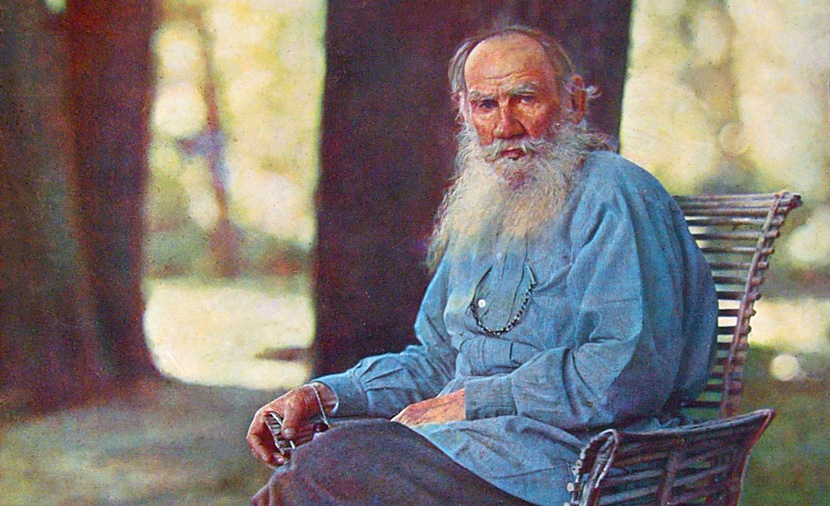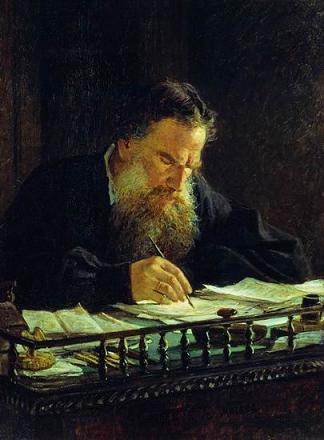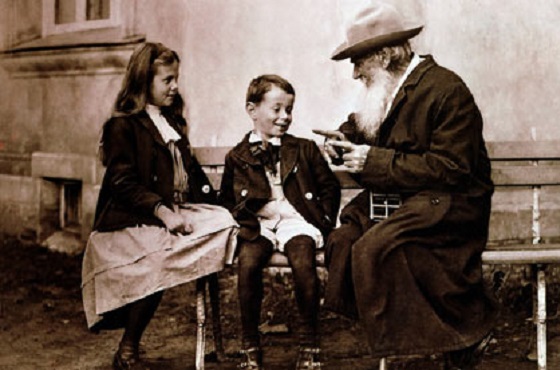The Life and Legacy of Leo Tolstoy
 Lev Tolstoy, also known as Leo Tolstoy, was one of the most influential and celebrated authors of the 19th century. Born on September 9, 1828, in Yasnaya Polyana, Russia, he came from an aristocratic family but eventually became disillusioned with the privileges of his class and dedicated himself to writing and advocating for social and moral reform. Tolstoy's works, particularly his novels "War and Peace" and "Anna Karenina," are regarded as masterpieces of world literature, exploring complex themes such as love, war, society, and the human condition. In addition to his literary contributions, Tolstoy's philosophical and moral writings continue to inspire readers around the globe.
Lev Tolstoy, also known as Leo Tolstoy, was one of the most influential and celebrated authors of the 19th century. Born on September 9, 1828, in Yasnaya Polyana, Russia, he came from an aristocratic family but eventually became disillusioned with the privileges of his class and dedicated himself to writing and advocating for social and moral reform. Tolstoy's works, particularly his novels "War and Peace" and "Anna Karenina," are regarded as masterpieces of world literature, exploring complex themes such as love, war, society, and the human condition. In addition to his literary contributions, Tolstoy's philosophical and moral writings continue to inspire readers around the globe.
Tolstoy's early life was marked by privilege and education. He was raised by relatives after losing his parents at a young age. He received a privileged education at home and later attended the University of Kazan, where he studied law and languages. However, Tolstoy's experiences with the Russian Orthodox Church and exposure to the harsh realities of serfdom profoundly shaped his worldview and influenced his later works.
Following his university studies, Tolstoy embarked on a military career, serving in the Crimean War. His experiences during the war deeply affected him and would later influence his writing. After leaving the military, Tolstoy returned to his estate at Yasnaya Polyana, where he devoted himself to writing and agricultural pursuits.
Tolstoy's literary career began with the publication of his autobiographical trilogy, "Childhood," "Boyhood," and "Youth." These early works explored themes of innocence, coming of age, and the search for meaning in a changing world. However, it was his epic novels "War and Peace" and "Anna Karenina" that cemented his reputation as one of the greatest novelists of all time.Published in serialized form between 1865 and 1869, "War and Peace" is a sprawling epic that chronicles the lives of Russian aristocrats during the Napoleonic Wars. Through its vast cast of characters and intricate plotlines, Tolstoy explores themes of love, war, fate, and the struggle for personal and national identity. The novel's rich historical detail and philosophical insights have captivated readers for generations.
"Anna Karenina," published between 1873 and 1877, is a tragic tale of love and betrayal set against the backdrop of Russian high society. The novel tells the story of Anna Karenina, a married woman who embarks on a passionate affair with the dashing Count Vronsky, leading to social ostracism and personal ruin. Tolstoy's exploration of love, morality, and the consequences of societal expectations remains as relevant today as it was in the 19th century.
In addition to his fiction, Tolstoy was also a prolific essayist and philosopher. He wrote extensively on topics such as morality, nonviolence, and the nature of existence. His philosophical works, including "The Kingdom of God Is Within You" and "What Is Art?," had a profound impact on figures such as Mahatma Gandhi and Martin Luther King Jr., who were inspired by Tolstoy's ideas on nonviolent resistance and social justice. Tolstoy's later years were marked by a deepening commitment to his moral and religious beliefs. He renounced his aristocratic lifestyle, embracing a simple way of life and advocating for pacifism and social reform. His rejection of organized religion and embrace of a personal interpretation of Christianity led to conflicts with the Russian Orthodox Church and the authorities.
Tolstoy's later years were marked by a deepening commitment to his moral and religious beliefs. He renounced his aristocratic lifestyle, embracing a simple way of life and advocating for pacifism and social reform. His rejection of organized religion and embrace of a personal interpretation of Christianity led to conflicts with the Russian Orthodox Church and the authorities.
Tolstoy's influence extended far beyond the literary world. His ideas on nonviolence, simplicity, and the pursuit of inner truth continue to resonate with people around the world. Despite his passing on November 20, 1910, Tolstoy's legacy endures through his timeless works and enduring ideas, ensuring that he remains one of the most revered and influential figures in world literature and philosophy. Certainly, let's delve further into some aspects of Tolstoy's life and work.
Certainly, let's delve further into some aspects of Tolstoy's life and work.
After the publication of "Anna Karenina," Tolstoy experienced a profound spiritual and philosophical crisis. He grappled with questions of existence, morality, and the purpose of life. This inner turmoil led him to embrace a radical interpretation of Christianity, which emphasized the teachings of Jesus Christ, particularly the principles of love, compassion, and nonviolence.
Tolstoy's religious and philosophical beliefs had a profound impact on his later writings and activities. He became increasingly critical of the Russian Orthodox Church, which he saw as corrupt and hypocritical, and rejected its teachings in favor of his own interpretation of Christian ethics. This led to his excommunication from the church in 1901.
One of Tolstoy's most influential works from this period is "The Kingdom of God Is Within You," published in 1894. In this book, Tolstoy argues for the principles of nonviolence, passive resistance, and the rejection of state authority. He contends that true Christianity is not found in rituals or institutions but resides within each individual, in the form of conscience and moral intuition.
Tolstoy's advocacy for nonviolence and social justice had a significant impact on the political landscape of his time. His writings inspired a new generation of activists and reformers, both in Russia and around the world. Figures such as Mahatma Gandhi, who corresponded with Tolstoy and adopted his ideas of nonviolent resistance in the struggle for Indian independence, drew inspiration from Tolstoy's philosophy. In addition to his philosophical and religious writings, Tolstoy was deeply committed to social reform. He advocated for the abolition of serfdom and the improvement of the living conditions of the peasantry in Russia. He also championed education reform, believing that education should be accessible to all, regardless of social class or background.
In addition to his philosophical and religious writings, Tolstoy was deeply committed to social reform. He advocated for the abolition of serfdom and the improvement of the living conditions of the peasantry in Russia. He also championed education reform, believing that education should be accessible to all, regardless of social class or background.
Tolstoy's commitment to social justice extended to his personal life as well. He founded schools for the peasant children on his estate at Yasnaya Polyana and worked tirelessly to improve the lives of the local community. He lived a simple and frugal lifestyle, eschewing the trappings of wealth and privilege, and devoted himself to helping those less fortunate than himself.Despite his fame and influence, Tolstoy remained a humble and introspective figure, constantly questioning his own beliefs and actions. He struggled with feelings of guilt and inadequacy, particularly in relation to his privileged upbringing and the suffering of others. These inner conflicts found expression in his later works, which often explore themes of guilt, redemption, and the search for meaning in a chaotic world.
In his final years, Tolstoy's relationship with his family became increasingly strained, particularly with his wife, Sofya. Their differing views on religion, politics, and family life led to frequent conflicts, and Tolstoy eventually left his estate in an attempt to live a simpler and more solitary existence. He died of pneumonia on November 20, 1910, while traveling by train, leaving behind a legacy that continues to inspire and provoke thought to this day.
In conclusion, Lev Tolstoy was not only a literary giant but also a moral philosopher, social reformer, and spiritual seeker. His works continue to resonate with readers of all backgrounds, exploring timeless themes of love, war, morality, and the human condition. Tolstoy's ideas on nonviolence, simplicity, and the pursuit of inner truth remain as relevant today as they were during his lifetime, ensuring that his legacy endures as one of the most enduring and influential figures in world literature and philosophy.










































